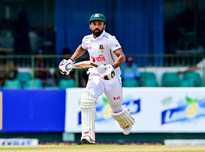The 2025 NBA Draft is complete, and team grades are in. These assessments focus on value and fit, leveraging stats-based projections and expert analysis, not immediate results.
Draft success isn't solely about the picks themselves; factors beyond team control, such as player health, significantly impact outcomes. Evaluating trades is also critical. Teams often overpay to move up, overestimating their evaluation skills.
Here’s a look at how each team fared:
Jump to a team: ATL | BOS | BKN | CHA | CHI | CLE DAL | DEN | DET | GS | HOU | IND LAC | LAL | MEM | MIA | MIL | MIN NO | NY | OKC | ORL | PHI | PHX POR | SAC | SA | TOR | UTAH | WAS

Round 1: Asa Newell (No. 23)
The Hawks capitalized by acquiring an unprotected 2026 first-round pick from the Pelicans, moving down ten spots. Selecting Asa Newell, ranked 13th in projections, was a bonus. Newell's strengths complement Kristaps Porzingis, creating an intriguing fit.
Round 1: Hugo Gonzalez (No. 28) Round 2: Amari Williams (No. 46), Max Shulga (No. 57)
Hugo Gonzalez's selection is questionable considering his shooting struggles (27% at Real Madrid). Amari Williams is an intriguing prospect, but his limited shooting range poses challenges. Max Shulga, a career 39% 3-point shooter, projects well.
Round 1: Egor Demin (No. 8), Nolan Traore (No. 19), Drake Powell (No. 22), Ben Saraf (No. 26), Danny Wolf (No. 27)
The Nets' strategy of accumulating first-round picks is more significant than the individual selections. Brooklyn is investing in developing numerous teenagers, many with overlapping skill sets. Egor Demin and Nolan Traore possess similar playmaking abilities, but their shooting and scoring efficiency require improvement.
Highlight reel of Kon Knueppel's best plays.
Round 1: Kon Knueppel (No. 4), Liam McNeeley (No. 29) Round 2: Sion James (No. 33), Ryan Kalkbrenner (No. 34)
Kon Knueppel fills a need at shooting guard, ranking second in projections. Liam McNeeley was a solid pick at No. 29. Sion James's selection is less appealing given his limited role in college. Ryan Kalkbrenner may contribute immediately due to Mark Williams's departure.
Round 1: Noa Essengue (No. 12) Round 2: Lachlan Olbrich (No. 55)
Noa Essengue could be a good fit with Matas Buzelis, providing length and athleticism. The Bulls continue to draft young talent despite avoiding a complete rebuild.
Round 2: Tyrese Proctor (No. 49), Saliou Niang (No. 58)
Tyrese Proctor is an interesting prospect with shooting potential and defensive promise. Saliou Niang faces an uphill battle due to shooting struggles.
Exploring the reasons behind Cedric Coward's selection.
Round 1: Cooper Flagg (No. 1)
Cooper Flagg was the obvious choice for the Mavericks after winning the lottery.
The Nuggets' limited draft capital results in an incomplete grade.
Round 2: Chaz Lanier (No. 37)
Chaz Lanier's emergence as a scorer provides the Pistons with insurance if they can't retain Malik Beasley and Tim Hardaway Jr.
Round 2: Alex Toohey (No. 52), Will Richard (No. 56)
Alex Toohey's defensive potential stands out. Will Richard, a high 2-point percentage player, was a good value pick.
The Rockets' picks were used to acquire Kevin Durant, making them winners despite their draft track record.
Round 2: Kam Jones (No. 38), Taelon Peter (No. 54)
Kam Jones has the potential to contribute immediately, providing guard help with Tyrese Haliburton sidelined. Taelon Peter is a fascinating swing with impressive shooting numbers.
Round 1: Yanic Konan Niederhauser (No. 30) Round 2: Kobe Sanders (No. 50)
Taking Yanic Konan Niederhauser in the first round is a questionable decision, given his limitations. Kobe Sanders' late blooming status raises concerns.
Round 2: Adou Thiero (No. 36)
The Lakers' trade to move up for Adou Thiero is commendable. Thiero's defensive potential is intriguing.
An emotional moment for V.J. Edgecombe and his family.
Round 1: Cedric Coward (No. 11) Round 2: Javon Small (No. 48), Jahmai Mashack (No. 59)
The Grizzlies' trade up for Cedric Coward is questionable. Javon Small is an undersized but efficient scorer. Jahmai Mashack fits the "Grit n' Grind" mold.
Round 1: Kasparas Jakucionis (No. 20)
Kasparas Jakucionis's slide down the draft allowed the Heat to capitalize on value.
Round 2: Bogoljub Markovic (No. 47)
Bogoljub Markovic's selection won't drastically alter Giannis Antetokounmpo's future. Markovic scored efficiently but raises defensive questions.
Round 1: Joan Beringer (No. 17) Round 2: Rocco Zikarsky (No. 45)
Joan Beringer could fit in the Timberwolves' system as a rim protector. Rocco Zikarsky provides a similar skillset, and their simultaneous development will be interesting to watch.
Round 1: Jeremiah Fears (No. 7), Derik Queen (No. 13) Round 2: Micah Peavy (No. 40)
The Pelicans' trade up for Derik Queen is risky, given his evaluation. Micah Peavy's breakout season gives him a shot at a 3-and-D role.
Round 2: Mohamed Diawara (No. 51)
Mohamed Diawara's selection is a stash pick with limited impact so far.
Round 1: Thomas Sorber (No. 15) Round 2: Brooks Barnhizer (No. 44)
Thomas Sorber's defensive potential and passing ability are intriguing. Brooks Barnhizer will be on a two-way contract.
Round 1: Jase Richardson (No. 25) Round 2: Noah Penda (No. 32)
Jase Richardson's selection offers value. Noah Penda's shooting is a work in progress.
Round 1: VJ Edgecombe (No. 3) Round 2: Johni Broome (No. 35)
VJ Edgecombe's defensive base and athleticism are appealing. Johni Broome can contribute immediately, providing skill at the center position.
Round 1: Khaman Maluach (No. 10) Round 2: Rasheer Fleming (No. 31), Koby Brea (No. 41)
Khaman Maluach was the top prospect available. Rasheer Fleming provides shot blocking and range. Koby Brea addresses the Suns' need for shooting.
Round 1: Yang Hansen (No. 16)
The Trail Blazers are betting on their ability to beat the market with Yang Hansen.
Round 1: Nique Clifford (No. 24) Round 2: Maxime Raynaud (No. 42)
The Kings limited the downside of the move by putting top-16 protection on the pick. Nique Clifford's late emergence as a prospect raises questions. Maxime Raynaud brings a similar skill set.
Round 1: Dylan Harper (No. 2), Carter Bryant (No. 14)
Dylan Harper was the consensus No. 2 pick. Carter Bryant's 3-and-D potential makes him an ideal fit.
Round 1: Collin Murray-Boyles (No. 9) Round 2: Alijah Martin (No. 39)
Collin Murray-Boyles' unorthodox game may translate to the NBA, but Toronto isn't an ideal landing spot. Alijah Martin is productive in college.
Round 1: Ace Bailey (No. 5), Walter Clayton Jr. (No. 18) Round 2: John Tonje (No. 53)
Ace Bailey's development will need careful management. Walter Clayton Jr., an NCAA champion and potent shooter, could help. John Tonje's shooting should translate to the NBA.
Round 1: Tre Johnson (No. 6), Will Riley (No. 21) Round 2: Jamir Watkins (No. 43)
The Wizards continue to lean into youth. Tre Johnson's shooting potential justifies the pick. Will Riley will need to improve his defensive playmaking. Jamir Watkins brings experience and defensive potential.
Newer articles
Older articles
 Chess Star Praggnanandhaa Weighs In on Carlsen's Frustration After Loss to Gukesh
Chess Star Praggnanandhaa Weighs In on Carlsen's Frustration After Loss to Gukesh
 Samsung Galaxy A35 5G and A55 5G: Official Pricing and Availability Announced
Samsung Galaxy A35 5G and A55 5G: Official Pricing and Availability Announced
 India's Fielding Woes Blamed for First Test Defeat Against England: Former Selector Voices Concerns
India's Fielding Woes Blamed for First Test Defeat Against England: Former Selector Voices Concerns
 Headline: Viral Optical Illusion: Can You Find All the Hidden Animals? Only 1% Succeed
Headline: Viral Optical Illusion: Can You Find All the Hidden Animals? Only 1% Succeed
 Shadman Stands By Bangladesh Batters After Day 1 Struggles Against Sri Lanka
Shadman Stands By Bangladesh Batters After Day 1 Struggles Against Sri Lanka
 Norris Claims Thrilling Austrian GP Victory After Intense Duel with McLaren Teammate Piastri
Norris Claims Thrilling Austrian GP Victory After Intense Duel with McLaren Teammate Piastri
 Jake Paul's Title Dreams: Analyzing Championship Prospects and Potential Opponents
Jake Paul's Title Dreams: Analyzing Championship Prospects and Potential Opponents
 Gavaskar Urges India to Unleash Kuldeep Yadav in Second Test Amid Bumrah Fitness Concerns
Gavaskar Urges India to Unleash Kuldeep Yadav in Second Test Amid Bumrah Fitness Concerns
 iQoo Z9 Turbo Leaks: Snapdragon 8s Gen 3, 1.5K Display, and Massive Battery Detailed
iQoo Z9 Turbo Leaks: Snapdragon 8s Gen 3, 1.5K Display, and Massive Battery Detailed
 Mirabai Chanu Reveals Relentless Dedication: Training and Weight Always Top of Mind, Even During Family Time
Mirabai Chanu Reveals Relentless Dedication: Training and Weight Always Top of Mind, Even During Family Time